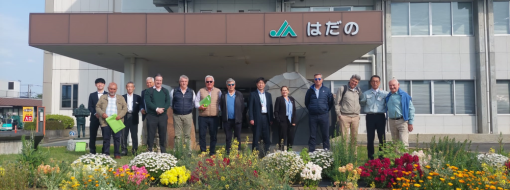

Cooperativas Agro-alimentarias de Andalucía (Agri-food Cooperatives of Andalusia), a federation which brings over 650 cooperatives and more than 290,000 farmers in southern Spain, organised a trade mission to Japan last April to find out about the cooperative model in the country and to expand the frontiers of its production.
On this trip, a representation of the main cooperatives in the Andalusian region met with JA Zenchu (Central Union of Agricultural Cooperatives), an organisation that represents the interests of cooperative agriculture and livestock farming professionals in Japan before the government administrations. At this meeting, the director general of JA Zenchu, Takuo Ichiya, and other members of the board, shared with the Andalusian organisation the problems and challenges they face in the production, processing and the commercialisation of their products.
Both countries agreed that one of the main obstacles in the agri-food sector is the lack of generational renewal on farms. They shared the need to dignify agricultural activity from schools to university classrooms in order to attract new generations.
They also pointed out the difficulty they have in maintaining the farms' profitability due to low profits of their production. They consider it essential to strengthen the food supply in the first stage (the farmers) to ensure the local agri-food system and the viability of the cooperatives.
During the meeting, the cooperative members from the south of Spain took the opportunity to establish commercial relations with the aim of increasing the export of Andalusian agri-food business, which in 2022 exceeded 164 million euros, mainly through the sale of olive oil and meat. However, for Andalusian Agri-food Cooperatives, it is essential that the export protocols for fresh fruit and vegetables are revised to strengthen sales abroad in this sector.
The Spanish federation also learned about the activity of JA Zen-noh, an organisation connected to JA Zenchu, which is responsible for offering services to cooperatives in Japan, such as financing and insurance management.
The Andalusian cooperatives also visited a model cooperative in the prefecture of Kanagawa. Executives from the JA Hadano cooperative, which specialises in rice, peanuts, flowers, cereals, tea and greenhouse fruit and vegetables, explained to the Spanish cooperative members how their business structures work.
Cooperativas Agro-alimentarias de Andalucía underlines the importance of these activities for the exchange of experiences between producers and cooperative members from different economic areas and is grateful to the EU-Japan Centre for Industrial Cooperation for organising the visits that took place last April.